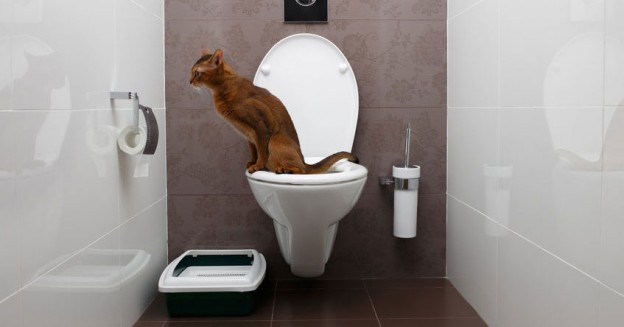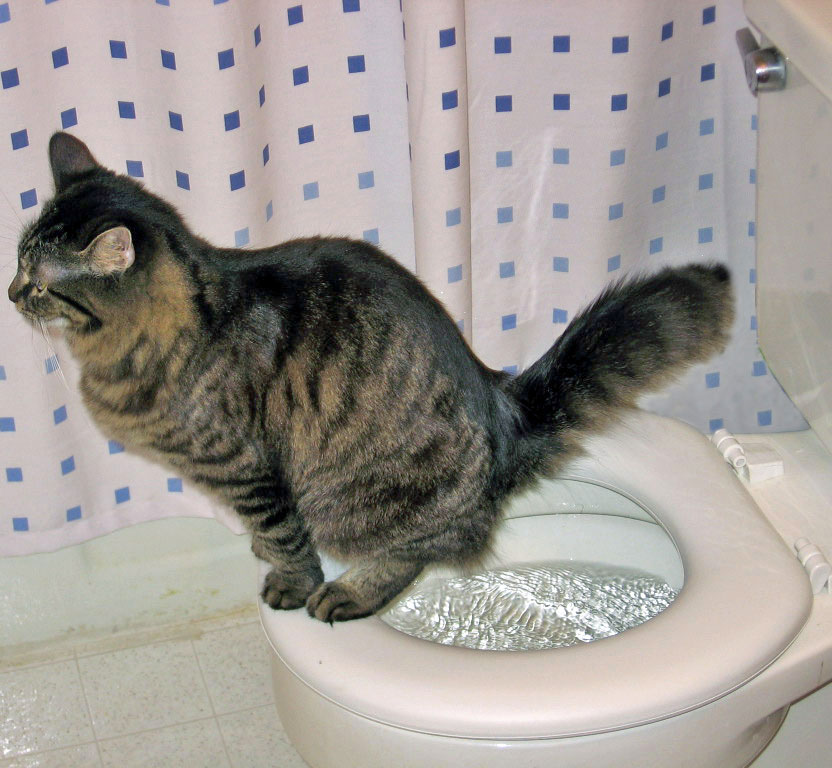Why Flushing Cat Poop Down Your Toilet Isn't a Good Idea - Tips for Proper Handling
Why Flushing Cat Poop Down Your Toilet Isn't a Good Idea - Tips for Proper Handling
Blog Article
This post below involving How to Dispose of Cat Poop and Litter Without Plastic Bags is indeed attention-grabbing. Don't bypass it.

Intro
As pet cat proprietors, it's important to bear in mind how we dispose of our feline pals' waste. While it may appear practical to purge feline poop down the commode, this practice can have damaging repercussions for both the setting and human health and wellness.
Environmental Impact
Purging feline poop presents hazardous pathogens and bloodsuckers into the water, positioning a significant threat to water ecological communities. These contaminants can adversely affect marine life and concession water quality.
Health Risks
In addition to environmental worries, flushing cat waste can also pose health and wellness threats to people. Feline feces may include Toxoplasma gondii, a parasite that can trigger toxoplasmosis-- a possibly serious illness, specifically for pregnant females and people with damaged body immune systems.
Alternatives to Flushing
The good news is, there are more secure and much more responsible methods to dispose of pet cat poop. Consider the complying with alternatives:
1. Scoop and Dispose in Trash
The most typical approach of disposing of cat poop is to scoop it right into an eco-friendly bag and throw it in the garbage. Be sure to make use of a devoted clutter inside story and throw away the waste immediately.
2. Use Biodegradable Litter
Go with naturally degradable feline litter made from products such as corn or wheat. These clutters are environmentally friendly and can be securely disposed of in the trash.
3. Bury in the Yard
If you have a yard, think about burying feline waste in an assigned location away from vegetable yards and water resources. Be sure to dig deep enough to stop contamination of groundwater.
4. Set Up a Pet Waste Disposal System
Purchase an animal garbage disposal system particularly made for cat waste. These systems make use of enzymes to break down the waste, minimizing smell and ecological impact.
Verdict
Accountable family pet possession prolongs past giving food and shelter-- it also involves proper waste administration. By refraining from purging feline poop down the toilet and choosing alternate disposal approaches, we can minimize our ecological footprint and secure human health.
Why You Should Never Flush Cat Poop Down the Toilet
A rose by any other name might smell as sweet, but not all poop is created equal. Toilets, and our sewage systems, are designed for human excrement, not animal waste. It might seem like it couldn’t hurt to toss cat feces into the loo, but it’s not a good idea to flush cat poop in the toilet.
First and foremost, assuming your cat uses a litter box, any waste is going to have litter on it. And even the smallest amount of litter can wreak havoc on plumbing.
Over time, small amounts build up, filling up your septic system. Most litter sold today is clumping; it is made from a type of clay that hardens when it gets wet. Ever tried to scrape old clumps from the bottom of a litter box? You know just how cement-hard it can get!
Now imagine just a small clump of that stuck in your pipes. A simple de-clogger like Drano isn’t going to cut it. And that means it’s going to cost you big time to fix it.
Parasitic Contamination
Believe it or not, your healthy kitty may be harboring a nasty parasite. Only cats excrete Toxoplasma in their feces. Yet it rarely causes serious health issues in the cats that are infected. Most people will be fine too if infected. Only pregnant women and people with compromised immune systems are at risk. (If you’ve ever heard how women who are expecting are excused from litter cleaning duty, Toxoplasma is why.)
But other animals may have a problem if infected with the parasite. And human water treatment systems aren’t designed to handle it. As a result, the systems don’t remove the parasite before discharging wastewater into local waterways. Fish, shellfish, and other marine life — otters in particular — are susceptible to toxoplasma. If exposed, most will end up with brain damage and many will die.
Depending on the species of fish, they may end up on someone’s fish hook and, ultimately on someone’s dinner plate. If that someone has a chronic illness, they’re at risk.
Skip the Toilet Training
We know there are folks out there who like to toilet train their cats. And we give them props, it takes a lot of work. But thanks to the toxoplasma, it’s not a good idea.

Do you like reading up on How to Dispose of Cat Poop and Litter Without Plastic Bags? Leave a review directly below. We'd be interested to know your ideas about this blog posting. Hoping that you come back again later on. Loved our content? Please share it. Help another person find it. Many thanks for your time. Please stop by our website back soon.
Free Quote Report this page